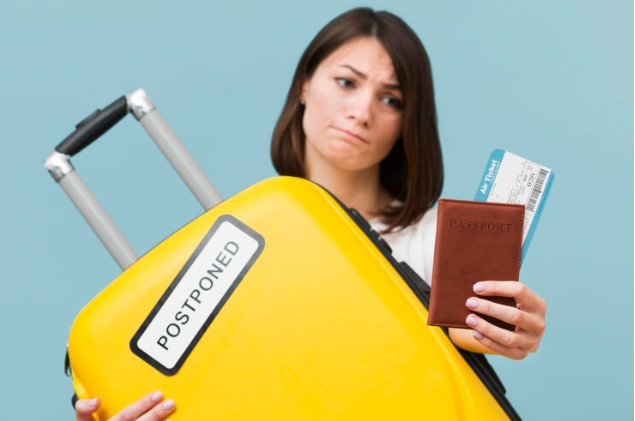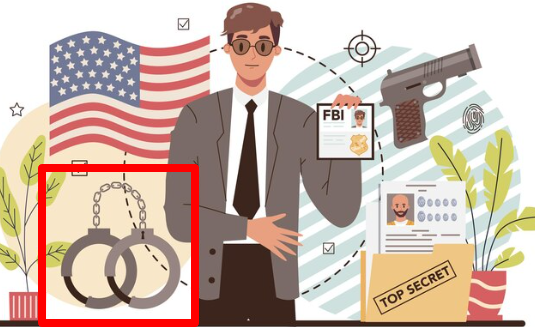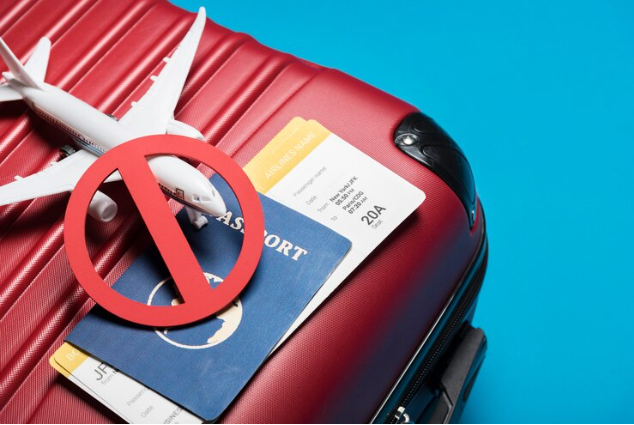How to Handle a Visa Overstay Situation

One major problem you should be very careful about is overstaying a visa in the United States. Whether you experienced unexpected circumstances or accidentally stayed over your permitted period, you should be aware of the results and solutions that apply. Covering penalties, possible solutions, and how to prevent long-term implications, this guide will teach you how to successfully handle a visa overstay situation.
What Happens If You Overstay Your Visa?
Overstaying a visa in the U.S. can have several unfavorable results. Overstaying your visa starts you to build what is known as unlawful presence. The effects rely on your length of overstay:
- Overstay Less Than 180 Days: If you have stayed in the United States for less than 180 days after your visa expires, you may not be subject to harsh fines, provided you depart the country before accumulating more than 180 days of illegal residence. However, you might still find it difficult to get a new visa in the future.
- Overstay More Than 180 Days: Staying beyond 180 days can cause one to be banned from returning to the United States. Depending on your overstay, this ban usually runs from three years to ten years.
- Overstay Beyond 10 Years: If you overstay your visa for 10 years or more, the fines may be harsh, and acquiring a new visa or reentering the country may call for major legal work such as a waiver.
Is Overstaying a Visa a Crime?
People often wonder: Is overstaying a visa a crime? Typically, overstaying is seen as a civil rather than a criminal violation. This implies that even if you won’t be charged with a crime of violence solely for overstaying, there can be significant immigration-related fines. Is visa overstay a crime? Technically no, although it does result in ineligibility for several immigration benefits and deportation.
Consequences and Penalties for Overstaying a Visa

Knowing the penalty for overstaying a U.S. visa is important:
- Three-Year Ban: If you accrue more than 180 days but less than one year of illegal presence, you could be banned from reentering the United States.
- Ten-Year Ban: If you stay more than one year of illegal presence, you could be subject to a ten-year suspension.
- Overstay Penalties: The overstay U.S. visa penalty also includes challenges in obtaining future visas, as immigration officers may perceive you as someone who does not respect visa requirements.
- Overstay Due to Medical Reasons: If you have an overstay visa due to medical reasons, you could be eligible to ask for tolerance; yet, this usually involves extensive documentation and confirmation of your inability to depart due to medical problems.
How is it Known by Immigration If You Overstay Your Visa?
You can ask, how does immigration know if you overstay your visa? The American immigration system electronically logs arrivals and departures. Your visa information is entered when you enter the country; if you do not leave by the time it expires, the system will note you as an overstayer. It is difficult to go unseen because this information is also shared with other stakeholders including airlines.
Visa Overstay Forgiveness for Immediate Relatives
If you are relatives of a U.S. citizen—that is, a spouse, child, or parent—you can be qualified for visa overstay forgiveness. Immigration laws grant some rights to immediate relatives, and even with an overstay there could be ways to validate your situation. This is usually accomplished by adjustment of status visa overstay, in which case you ask to become a lawful permanent resident (green card holder) without leaving the United States.
Adjustment of Status for Visa Overstay

If you overstayed visa and married to a U.S. citizen, you could be eligible to change your status within the United States without leaving the nation. One of the most often used approaches to fix overstay problems is the overstay visa adjustment of status. This procedure submits Form I-485 (Application to Register Permanent Residence or Adjust Status) to USCIS.
For those married to American citizens, this road can be easy. Given U.S. immigration law gives particular consideration to immediate relatives of U.S. citizens, being an overstayed visa and married U.S. citizen typically allows for visa overstay and adjustment of status without incurring fines.
Waivers for Overstaying a Visa
Sometimes people may have to seek a waiver for overstaying a visa to solve their illegal presence. Usually depending on your particular circumstances, the waiver is called an I-601 or I-601A waiver.
- I-601 Waiver: These waivers are usually requested by those outside the United States subject to a return ban.
- I-601A Waiver: Those inside the United States looking to adjust their status can stay in the nation while their waiver is under processing.
Applying for a waiver can be a difficult procedure; so, it is important to see an immigration attorney to assess your eligibility and raise your chances of success.
Overstay and Adjustment of Status During Pending Applications
Sometimes, people overstay their visas as they are in the middle of an immigration application. As long as your application is correctly filed and pending, you could still be protected even if your visa expires while waiting for adjustment of status. This can act as a barrier to removal during a review of your status.
What If You Overstay Your Visa and Get Married?

What happens if you overstay your visa and get married is a typical question. If you overstay your visa and subsequently marry a U.S. citizen, you could still be eligible to adjust your status and get a green card. The U.S. government frequently treats those who marry citizens with forgiveness, as family unity is a core value of immigration policy.
However, your situation may get more complicated if you marry someone other than a U.S. citizen or lawful permanent resident, and you may find difficulties leaving and returning to the country.
Overstay for Acceptable Reasons
Sometimes an overstay cannot be avoided. Some valid reasons for overstaying a visa include:
- Medical Emergencies: If a person’s health is so bad they would not be able to leave.
- Travel Restrictions: Travel is impossible if the person’s place of origin is experiencing unstable politics or natural disaster.
These reasons might not clear the overstay, but they can help to justify a waiver or leniency application.
Overstay Penalties: Leaving the U.S. After Overstaying

Leaving the United States after violating your visa could have consequences, depending on how long you overstayed. The punishment for overstaying a visa in the USA includes possible bans from reentry, although voluntary departure could sometimes lessen these penalties. See an immigration attorney to find out whether a waiver is needed if you leave the United States after overstaying your visa.
Overstay and Coming Back to the United States
Often asked if, I overstayed my visa in the USA, can I return? The answer will rely on your overstay length and whether you departed freely or were deported. If you have a ban, you might need a waiver to get back earlier. Otherwise, you will have to wait until the ban term expires.
How to Fix an Overstayed Visa
Fix an overstayed visa most usually by:
- Adjustment of Status: If qualified, seek an adjustment of status.
- Leaving and Reapplying: Though it is dangerous and could call for a waiver, leave the United States and seek a new visa.
- Waiver Application: Particularly if you have valid reasons or immediate family members who are U.S. citizens, apply for a waiver for overstaying a visa.
In Summary
Dealing with a visa overstay scenario might be stressful, but depending on your circumstances there are multiple routes open. Understanding your alternatives is essential whether your goal is a waiver for overstaying a visa, investigating visa overstay forgiveness for immediate family, or thinking about adjustment of status. See an experienced immigration attorney to significantly boost your chances of a positive outcome.
Contact Passage Immigration Law right now if you or a loved one find yourself in an overstay scenario. Our knowledgeable staff is ready to guide you across the complexity of U.S. immigration law and toward the best future way forward. Get in touch right now to arrange a consultation and begin professionally guided addressing your visa overstay concerns.
